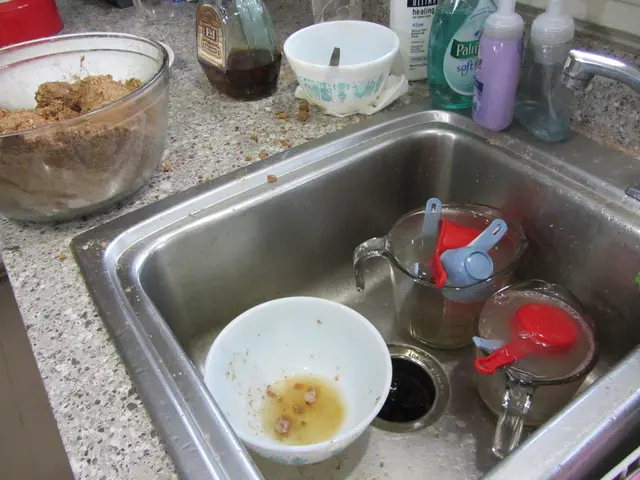Preparing for Heart Emergencies: Essential Information You Should Be Aware Of
Heads Up on Heart Attacks: Be Prepared and Act Fast
Experiencing a heart attack can be a life-threatening situation, so don't waste a moment if you or someone you love shows signs. Swift action could mean a better prognosis and improved quality of life in the future.
The Nitty Gritty on Heart Attacks
It's alarming, but over 800,000 Americans experience a heart attack annually, according to the Centers for Disease Control and Prevention (CDC). Being ready and knowing what to do when heart attack symptoms strike is crucial.
"If you suspect a heart attack, don't hesitate," advises cardiologist John Mansour, MD. "Time is vital when it comes to a heart attack."
Getting Ahead of the Game
You can't predict when a heart attack will happen, but being prepared can certainly help.
"The first step in preparation is prevention," says Dr. Mansour. Acknowledging lifestyle choices, like smoking and poor diet, increases the risk of heart attack. It's wise to stop smoking, adopt a healthier diet, and begin exercising regularly—even small changes can make a difference.
"Exercise has the biggest impact when you go from doing nothing to doing something," Dr. Mansour points out. You don't have to run a marathon to see the benefits; just walking regularly can improve your heart health.
Also, if you've got a family history of heart disease, you may want to get regular check-ups to stay on top of things.
Other Essential Prep Steps
- Understand the distinction between heart attacks, panic attacks, and sudden cardiac arrest.
- Keep aspirin handy in easily accessible locations, like a medicine cabinet, your car, or bag/purse.
- Learn CPR to assist loved ones who may be at risk.
- Talk to your doctor about nitroglycerin if you're a heart patient.
- Let family and friends know about warning signs, encouraging them to call 911 promptly.
Don't Dally - Head to the ER ASAP
While it's unrealistic to reach the emergency room within a few minutes of experiencing heart attack symptoms, taking immediate action is critical.
"Delaying a call to 911 or waiting to go to the hospital can be deadly," Dr. Mansour warns. "Time equals muscle. The longer you wait, the more damage your heart sustains."
Some people hesitate to call 911 due to embarrassment, denial, responsibilities, or misconceptions about dramatic symptoms. However, more than 25% of patients wait over six hours before seeking help, which could lead to dire consequences.
Recognizing Heart Attack Symptoms
Symptoms vary from person to person, but watch out for these common signs:
- Intense, gradual chest pain or angina
- Pain radiating from the jaw, throat, arm, or back
- Profuse sweating or cold sweats
- Nausea or vomiting
- Lightheadedness
- Shortness of breath
- Discomfort in the upper abdomen
- Rapid or irregular heartbeats
- Excessive fatigue or weakness
- A heavy feeling in the chest
Women tend to experience unique symptoms, such as neck, jaw, or back pain, rather than chest pain. "Women typically wait four times longer than men to seek medical attention because they don't feel any chest pain," adds Dr. Mansour.
Don't Ignore These Symptoms
Any symptoms listed above should never be disregarded. Seeking immediate medical attention, even if you're not having a heart attack, is better than playing it safe. Your best chance for survival depends on acting swiftly and wisely.
- Acknowledging the high incidence of heart attacks, it's crucial to understand the distinction between heart attacks, panic attacks, and sudden cardiac arrest.
- In the Urgent Preparation Steps, keeping aspirin handy can be a life-saver, as it's beneficial in the early stages of a heart attack.
- Chronic diseases such as heart diseases can run in families; hence, regular medical check-ups are essential to manage health-and-wellness and cardiovascular health.
- Living a healthy lifestyle, free of smoking and poor diet, can help prevent chronic diseases like heart diseases and improve overall health and wellness.







